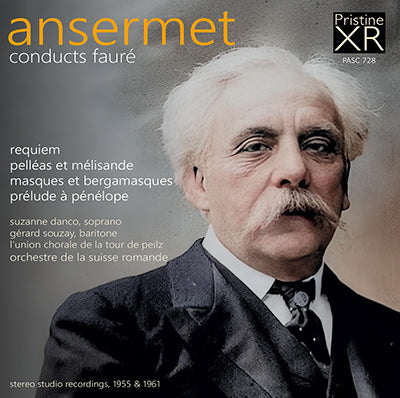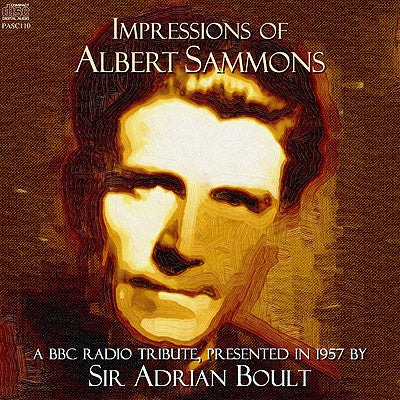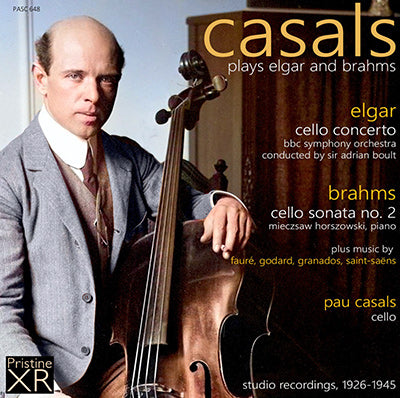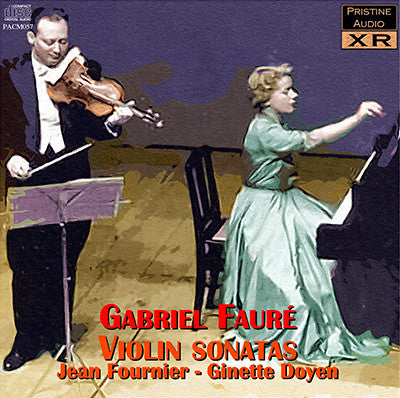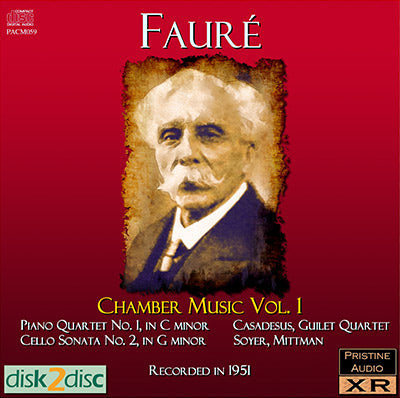Fauré
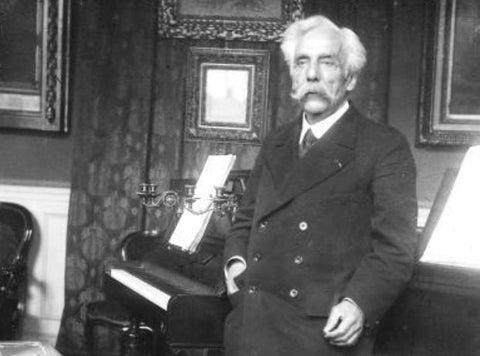
Fauré was born into a cultured but not especially musical family. His talent became clear when he was a small boy. At the age of nine, he was sent to a music college in Paris, where he was trained to be a church organist and choirmaster. Among his teachers was Camille Saint-Saëns, who became a lifelong friend. After graduating from the college in 1865, Fauré earned a modest living as an organist and teacher, leaving him little time for composition. When he became successful in his middle age, holding the important posts of organist of the Église de la Madeleine and director of the Paris Conservatoire, he still lacked time for composing; he retreated to the countryside in the summer holidays to concentrate on composition. By his last years, Fauré was recognised in France as the leading French composer of his day. An unprecedented national musical tribute was held for him in Paris in 1922, headed by the president of the French Republic. Outside France, Fauré's music took decades to become widely accepted, except in Britain, where he had many admirers during his lifetime.
Fauré's music has been described as linking the end of Romanticism with the modernism of the second quarter of the 20th century. When he was born, Chopin was still composing, and by the time of Fauré's death, jazz and the atonal music of the Second Viennese School were being heard. The Grove Dictionary of Music and Musicians, which describes him as the most advanced composer of his generation in France, notes that his harmonic and melodic innovations influenced the teaching of harmony for later generations. During the last twenty years of his life, he suffered from increasing deafness. In contrast with the charm of his earlier music, his works from this period are sometimes elusive and withdrawn in character, and at other times turbulent and impassioned.

Fauré
FAURÉ Requiem
FAURÉ Pelléas et Mélisande - Suite
FAURÉ Masques et Bergamasques Suite
FAURÉ Pénélope - Prelude
Stereo studio recordings, 1955 & 1961
Total duration: 76:38
Suzanne Danco, soprano
Gérard Souzay, baritone
L’Union Chorale de la Tour de Peilz
Orchestre de la Suisse Romande
conducted by Ernest Ansermet
BOULT Impressions of Albert Sammons
Broadcast in 1957 on the BBC Home Service
Total duration: 29:46
Albert Sammons, violin
Presented by Sir Adrian Boult
ELGAR Cello Concerto
BRAHMS Cello Sonata No. 2
plus music by Fauré, Godard, Granados, Saint-Saëns
Studio recordings, 1926-1945
Total duration: 72:42
Pau Casals, cello
Mieczyslaw Horszowski, piano
Nicolai Mednikov, piano
BBC Symphony Orchestra
conducted by Sir Adrian Boult
FAURÉ String Quartet in E minor, Op. 121
FAURÉ Violin Sonata No. 2 in E minor, Op. 108
FAURÉ String Quartet in E minor, Op. 121
FAURÉ Violin Sonata No. 2 in E minor, Op. 108
FAURÉ Piano Quintet in C minor, Op. 115
FAURÉ Piano Quartet No. 2 in G minor, Op. 45
Ray Lev, piano
Daniel Guilet, violin
David Soyer, cello
Leopold Mittman, piano
Gaby Casadesus, piano
Guilet Quartet
The Pascal String Quartet
The Robert Masters Pianoforte Quartet
Save 5% when you buy the complete set
FAURÉ Violin Sonata No.1 in A major, Op. 13
FAURÉ Violin Sonata No.2 in E minor, Op. 108
Recorded April 1952
Duration 47'36"
Jean Fournier, violin
Ginette Doyen, piano
FAURÉ String Quartet in E minor, Op. 121
FAURÉ Violin Sonata No. 2 in E minor, Op. 108
Total duration: 45:22
Gaby Casadesus, piano
Members of the Guilet Quartet
David Soyer, Cello
Leopold Mittman, Piano
-
Previous
- Page 1 of 4
- Next

